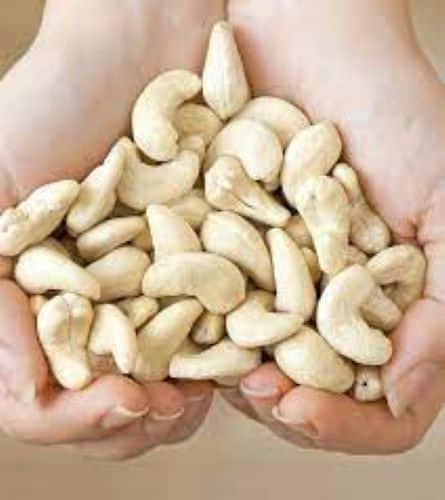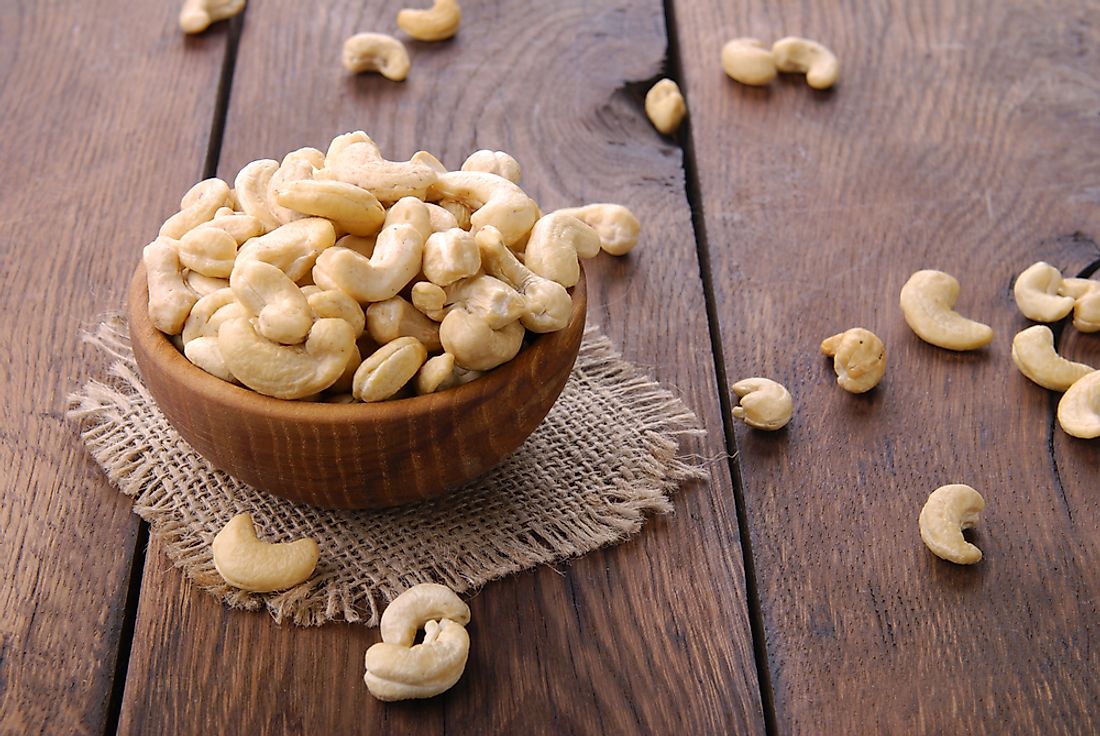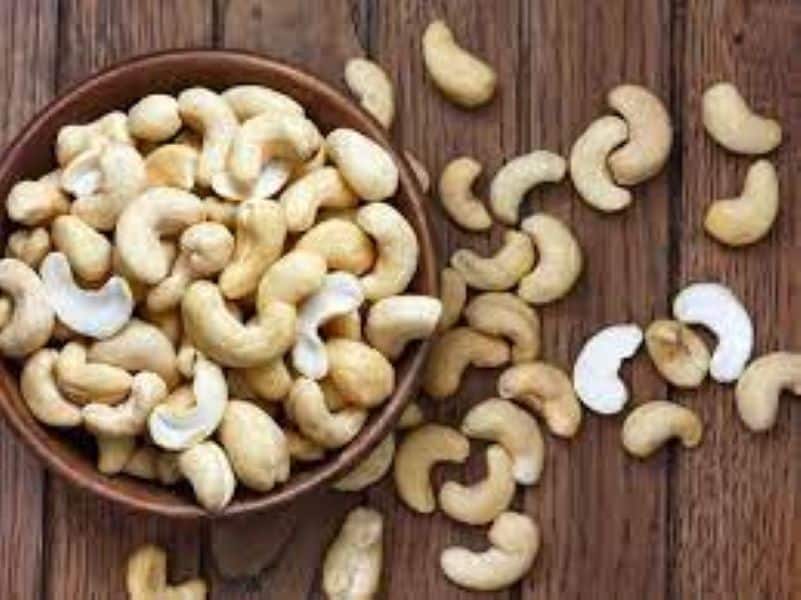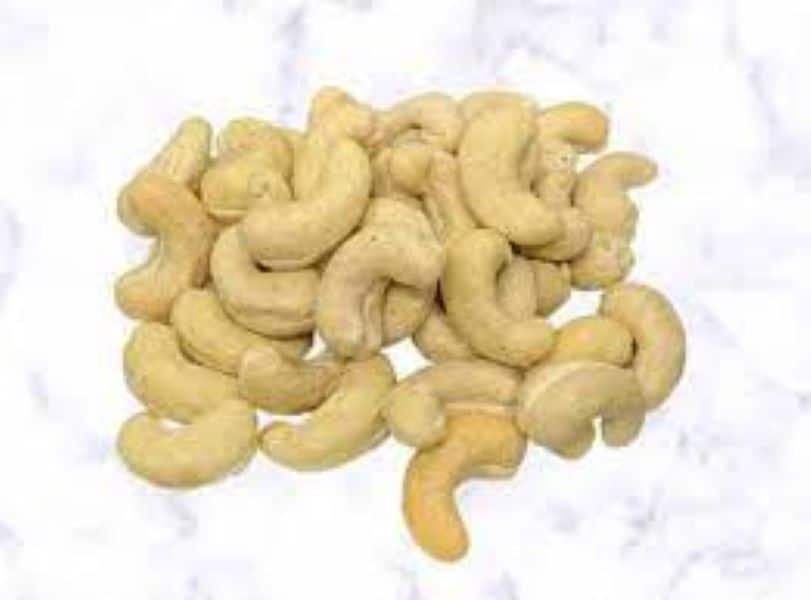Blog
Which country cashew nuts are best?

Cashew Nuts’ History
Find out where cashews are from before you talk about which country has the best ones. The cashew tree (Anacardium occidentale) grows in the northeastern part of Brazil. Explorers from Portugal in the 1600s brought cashew trees to tropical Asia and Africa. Cashews are grown and processed all over the world, and each area gives them its own flavor.
Top 10 countries that grow cashews:
We are going to look at each of the top 10 cashew nut producers to see what they bring to the global market:
- India: Most of the world’s cashews come from India. The states of Maharashtra, Kerala, Karnataka, and Andhra Pradesh grow the most cashews. People love Indian cashews for their size, flavor, and creaminess. India has a lot of experience processing nuts, so it is great at making roasted, salted, and flavored cashew products.
- Vietnam: Vietnam grows a lot of cashews because it has a good climate and good processing facilities. In the Mekong Delta, cashews taste great. Vietnamese cashews are liked because they are all the same size, crunchy, and cheap. The country’s strong export infrastructure and strategic location have helped it take over the world cashew market.
- Ivory coast: Ivory Coast is one of the best places in Africa to grow cashews because it has rich soil and a good climate for growing crops. People from the country love the sweet and earthy taste of their cashews. Ivory Coast’s cashew products are more appealing to picky customers around the world because the country’s farmers use sustainable farming methods.
- Nigeria: Nigeria has a lot of cashew farms, especially in Oyo, Kogi, and Enugu. Because they are crunchy and have a strong flavor, Nigerian cashews are great for snacking and cooking. The country’s position on the world market has been strengthened by improvements in cashew production and processing.
- Benin: Benin is another country close to Nigeria that grows a lot of cashews. Because of its good climate and environmentally friendly farming methods, the country grows high-quality cashew nuts. Everyone loves Benin’s cashews because they taste great and are good for you.
- Tanzania: The cashew industry in Tanzania has grown thanks to new farming methods and infrastructure. Because of where they come from, Mtwara and Lindi cashews have a strong flavor and a unique smell. Tanzania is a world leader in cashews thanks to its efforts to add value and export its nuts.
- Brail: Even though there are disease outbreaks and climate change, Brazil is a major producer of cashew nuts. Cashews from Brazil are rich and buttery because they are grown in northeastern Brazil. In the past few years, Brazil has produced fewer cashews, but there are now efforts to bring the industry back to life and take advantage of rising demand in Brazil and around the world.
- Guinea-Bissau: The sunny coast of West Africa has good drainage, making it a good place to grow cashews. People love the country’s cashew nuts because they are naturally sweet and crunchy. Because of quality control and sustainable farming, Guinea-Bissau’s cashew industry does very well.
- Indonesia: The tropical weather on Bali and Sulawesi is great for growing cashews. Indonesian cashews taste fruity and nutty because of the way they grow in the archipelago. The country is a world leader in cashews because it has grown and made processing better.
- Cambodia: Cambodia’s cashew business has grown thanks to investments in technology and infrastructure. Kampong Thom and Kampong Cham cashews are crunchy and just a little sweet. Sustainable farming and organic certification in Cambodia make its cashew products more popular around the world.
People all over the world can enjoy a wide range of tastes and textures from the top 10 countries that grow cashew nuts. With its own climate, soil, and farming methods, each country grows and processes cashew nuts in its own way, giving picky eaters a range of choices.
Conclusion
In the race to be the best cashew nut country, each country that grows them brings something special to the world market. Cashew nuts come in a lot of different types, from creamy Indian to crunchy Vietnamese. Cashew-growing countries have something for everyone, whether you care about taste, texture, or getting your nuts in an ethical way. The best cashew nuts taste great and show what country they come from.
Frequently Asked Questions About the Best Quality Cashew Nuts
- What makes cashew nuts high quality?
High-quality cashew nuts should be whole, evenly sized, and free of blemishes or cracks. They should also have a firm texture, a mild and nutty flavor, and a delicate sweetness. Additionally, high-quality cashews should be roasted or baked at low temperatures to preserve their nutrients and natural oils. - Which country produces the best quality cashew nuts?
The countries that are known for producing the best quality cashew nuts are Vietnam, India, and Tanzania. However, there are also high-quality cashew nuts that come from Brazil and Indonesia. - What should I look for when buying cashew nuts?
When buying cashew nuts, you should look for nuts that are unblemished, uniform in color, and free of mold or spots. You should also look for nuts that are whole or in large pieces rather than small, broken pieces. - How do I store cashew nuts to maintain their quality?
To maintain their quality, store cashew nuts in an airtight container in a cool, dry place such as a pantry or cupboard. You can also keep them in the refrigerator or freezer to extend their shelf life. - What are the health benefits of eating cashew nuts?
Cashew nuts are a good source of healthy fats, fiber, and protein. They also contain vitamins and minerals including magnesium, copper, and iron. Eating cashew nuts in moderation may help reduce the risk of heart disease, diabetes, and other chronic health conditions. - Are there any risks associated with eating cashew nuts?
Cashew nuts are generally safe to eat for most people. However, some individuals may be allergic to cashews or other tree nuts, in which case eating cashew nuts can cause a severe reaction. - How can I use cashew nuts in cooking and baking?
Cashew nuts can be used in a variety of ways in cooking and baking. They can be roasted and added to salads, used as a garnish for soups and stews, or blended into sauces and dips. Cashew nut butter can also be used as a substitute for peanut butter in sandwiches, baked goods, and smoothies. - What is the difference between regular and organic cashew nuts?
Organic cashew nuts are grown and processed without synthetic fertilizers, pesticides, or other chemicals. Regular cashew nuts may be treated with these substances to increase their yield and protect them from pests and diseases. Organic cashews may be slightly more expensive than regular cashews but their production is more environmentally sustainable. - How can I tell if cashew nuts are rancid?
Cashew nuts that are rancid may have a sour or stale smell and taste. They may also appear yellow or brown in color, and their texture may be soft or sticky rather than firm and crunchy. - What is the best way to roast cashew nuts at home?
To roast cashew nuts at home, preheat your oven to 350 degrees Fahrenheit and spread the nuts in a single layer on a baking sheet. Roast them for about 10 to 15 minutes or until they are lightly golden and fragrant. Be careful not to overcook them, as this can cause them to become dry and lose their flavor.






“Your positivity towards health makes me excited to improve!”
The author’s passion for their subject matter shines through in every post. Thank you for sharing your enthusiasm and expertise with us.